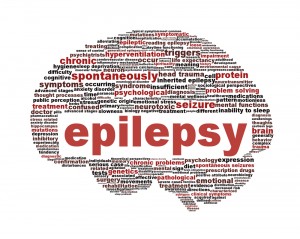-
 Arizona
ArizonaNational Epilepsy Reports Highlights Gaps and Stigmas
SCOTTSDALE, Ariz. — April 2, 2012. A new report released today from the Institute of Medicine highlights numerous gaps in the knowledge and management of epilepsy and recommends actions for improving the lives of those with epilepsy and their families and promoting better understanding of the disorder.

Effective treatments for epilepsy are available but access to treatment and timely referrals to specialized care are often lacking, the report's expert committee found.
Joseph Sirven, M.D., chair of Neurology at Mayo Clinic in Arizona was one of the 16 members of the committee which met for more than a year to create the report.
Among the key highlights of the more than 400-page report:
- Misperceptions about epilepsy persist and a focus on raising public awareness and knowledge is needed, the report adds. Educating community members such as teachers, employers, and others on how to manage seizures could help improve public understanding of epilepsy.
- Reaching rural and underserved populations, as well as providing state-of-the art care for people with persistent seizures, is particularly crucial. The report's recommendations for expanding access to patient-centered health care include early.
- Identification and treatment of epilepsy and associated health conditions, implementing measures that assess quality of care, and establishing accreditation criteria and processes for specialized epilepsy centers.
- Some causes of epilepsy, such as traumatic brain injury, infection, and stroke, are preventable. Prevention efforts should continue for these established risk factors.
- People with epilepsy need additional education and skills to optimally manage their disorder. Consistent delivery of accurate, clearly communicated health information from sources that include health care professionals and epilepsy organizations can better prepare those with epilepsy and their families to cope with the disorder and its consequences.
- Living with epilepsy can affect employment, driving ability, and many other aspects of quality of life. The report stresses the importance of improved access to a range of community services, including vocational, educational, transportation, transitional care, and independent living assistance as well as support groups.
- The report suggests several strategies for stakeholders to improve public knowledge of the disorder, including forming partnerships with the media, establishing advisory councils, and engaging people with epilepsy and their families to serve as advocates and educators within their communities.
Dr. Sirven has published extensively on epilepsy and its treatment. His interests in epilepsy include status epilepticus, surgical therapy, epilepsy in older adults and psychosocial issues particularly those involving Hispanic populations and transportation. His articles have appeared in Neurology, Epilepsia, Lancet, Archives of Neurology, Annals of Neurology, Epilepsy & Behavior and Mayo Clinic Proceedings. He is editor of four textbooks: "Clinical Neurology of the Older Adult," the American Epilepsy Society's "Introduction to Epilepsy," "Clinical Epilepsy," and "An Atlas of Video EEG Monitoring." He is also editor-in-chief of epilepsy.com.
He is currently chair of the Professional Advisory Board of the National Epilepsy Foundation, education chair for the Epilepsy Section of the American Academy of Neurology, Chair of the Annual Course Committee for the American Epilepsy Society and Chair of the Quality of Life Committee for the Epilepsy Foundation. At Mayo Clinic, he is currently co-Director of the Epilepsy Program in Arizona, and previously, he served as Director of Education.
For more information about the report visit the National Academies or the Institute of Medicine.
###
About Mayo Clinic:
Recognizing 150 years of serving humanity in 2014, Mayo Clinic is a nonprofit worldwide leader in medical care, research and education for people from all walks of life. For more information, visit 150years.mayoclinic.org, www.mayoclinic.org and newsnetwork.mayoclinic.org.
Media Contact: Jim McVeigh, Public Affairs, 480-301-4222







